Cannabis is illegal in Lebanon, despite the fact that the country is famous for producing high quality hashish. However, in 2018, the government announced they were planning to move ahead with legalising cannabis for medical purposes. Since then, political unrest has held up these plans, and no-one is sure whether the law will be passed or not.
- Capital
- Bayrut (Beirut)
- Population
- 5,606,000
- CBD Products
- Legal
- Recreational cannabis
- Illegal
- Medicinal cannabis
- Illegal
- Cannabis laws in Lebanon
- Can you possess and use cannabis in Lebanon?
- Can you sell cannabis in Lebanon?
- Can you grow cannabis in Lebanon?
- Is CBD legal in Lebanon?
- Can cannabis seeds be sent to Lebanon?
- Medicinal cannabis in Lebanon
- Industrial hemp in Lebanon
- Good to know
- Attitudes to cannabis
- What’s the cannabis like in Lebanon?
- Bekaa Valley’s fight over legalisation
- Lebanese hash production
- Will it be legalised in the future?
Cannabis laws in Lebanon
Can you possess and use cannabis in Lebanon?
Possession and use of cannabis is illegal in Lebanon, and even possessing a small quantity is regarded as a criminal offence. According to the Narcotic Drugs and Psychoactive Substances Law 673, using any narcotics without medical prescription can result in a prison sentence of between three months and three years, in addition to a fine. The law permits leniency if the individual is not involved in drugs dealing and demonstrates good conduct.
Although the laws are tough, cannabis arrests are relatively infrequent – but they do occur from time to time. In 2013, for example, a 26-year-old woman was charged with possession of just six grams of hashish.
In the Bekaa Valley, an area known for cannabis cultivation, there are over 40,000 outstanding arrest warrants against farmers and traffickers alike. There have been calls for an amnesty between the farmers and the authorities, but as of yet, this hasn’t occurred.
Can you sell cannabis in Lebanon?
The sale or supply of cannabis in Lebanon is also illegal, and penalties are more severe than for possession. A longer prison sentence may be given, in addition to a larger fine.
Unlike an offender caught possessing cannabis (who can appeal for leniency), anyone caught dealing cannabis cannot appeal for a reduced sentence.
Can you grow cannabis in Lebanon?
It’s illegal to cultivate cannabis in Lebanon, even in small quantities in your own home.
Despite this, cannabis is widely grown in the country, and the U.N. claims that Lebanon is the world’s third largest supplier of cannabis resin (hash). Cultivation is particularly common in the Bekaa Valley, which is regarded as the heartland of traditional hashish-making. Indeed, it’s so integral to the local culture that a Roman temple in Baalbek has an engraving of a cannabis leaf on it.
The police and the cannabis farmers are continually in conflict, but regardless of the law, cannabis continues to be grown here.
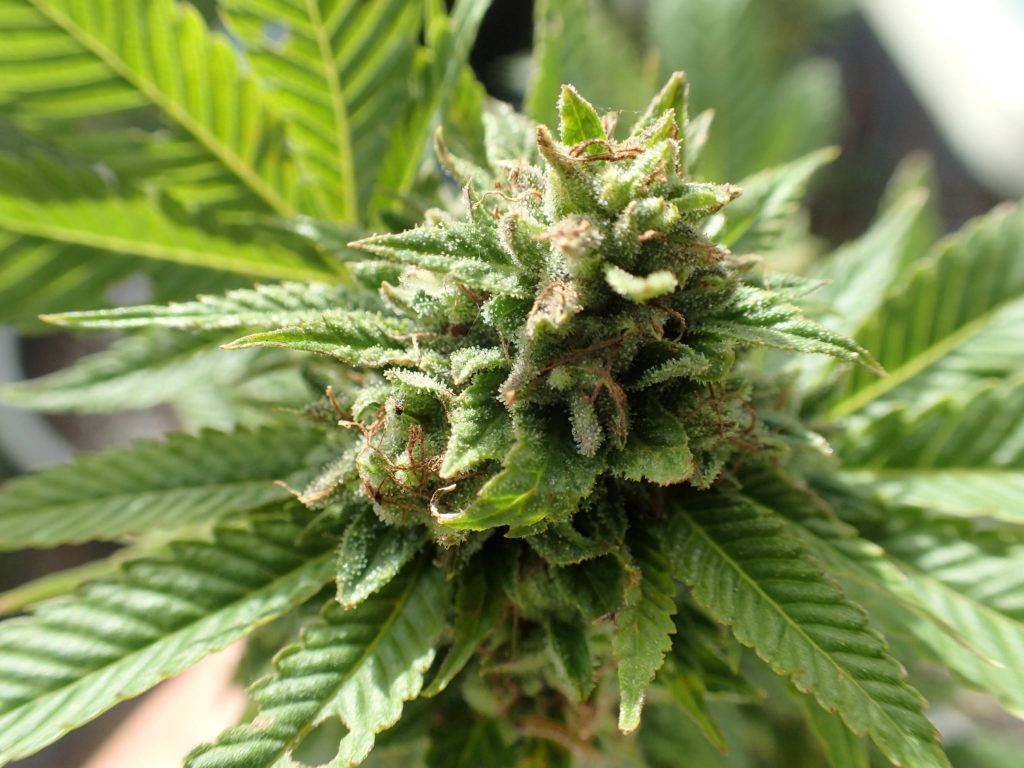
Is CBD legal in Lebanon?
The law doesn’t differentiate between cannabis and CBD. Although CBD has very low levels of THC (the substance responsible for providing the ‘high’) it is still regarded as an illegal substance in Lebanon, and its sale and use are forbidden.
Can cannabis seeds be sent to Lebanon?
Cannabis seeds are not legal in Lebanon, and you’re not allowed to buy or sell them. Nor can you send them in the post.
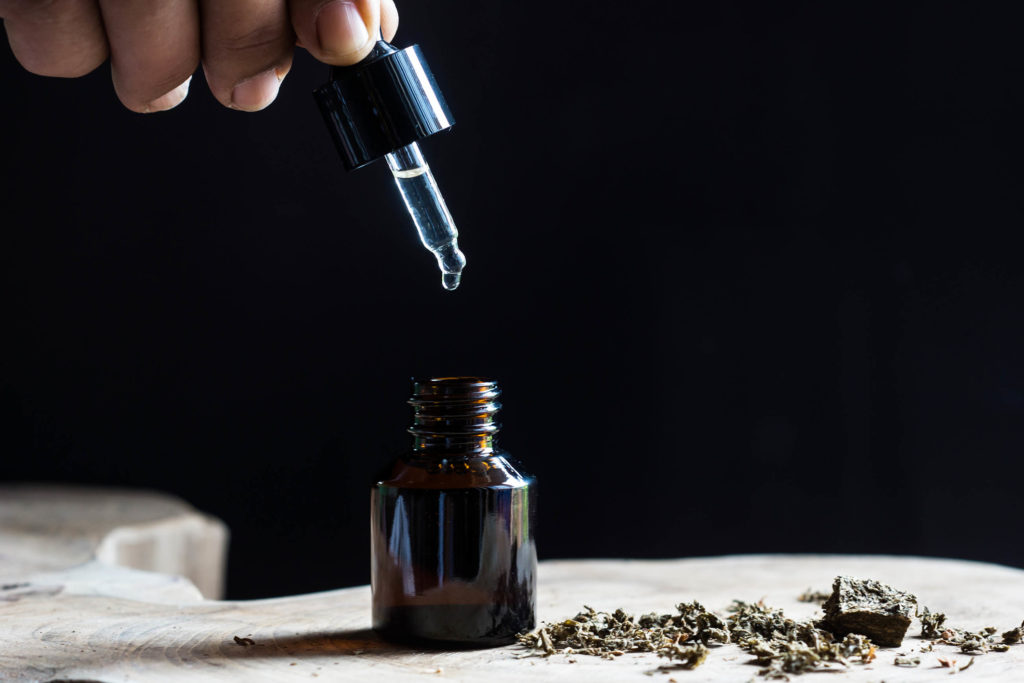
Medicinal cannabis in Lebanon
Up until 2018, medicinal cannabis was illegal in Lebanon, and there was no evidence to suggest that the law would change. However, in July 2018, the country’s parliament announced that they were preparing to legalise not only medicinal cannabis consumption, but also its cultivation too.
The decision came after the government received a report from McKinsey & Co, recommending that cultivating medicinal cannabis would boost the country’s economy and address its debt problem. As one of the world’s biggest producers of cannabis resin, the potential for the Lebanese cannabis market is huge.
At that point, House Speaker Nabih Berri didn’t state any timeframe for the changes to come into action. This wasn’t surprising, given Lebanon’s unstable political climate. Indeed, by the end of 2018 (seven months later), the country had failed to form a new government, which potentially put the plans on hold for the foreseeable future.
However, it seemed like the move to legalise cannabis for medical purposes would happen in the near future. Many Lebanese politicians publicly endorsed medicinal cannabis, and in July 2018, Raed Khoury, the Economy Minister, even stated that Lebanon’s cannabis was “one of the best in the world.”
In April 2020, the government finally approved a draft law, making medicinal cannabis legal. This was a landmark moment, and marked Lebanon as the first Arab country to do so.
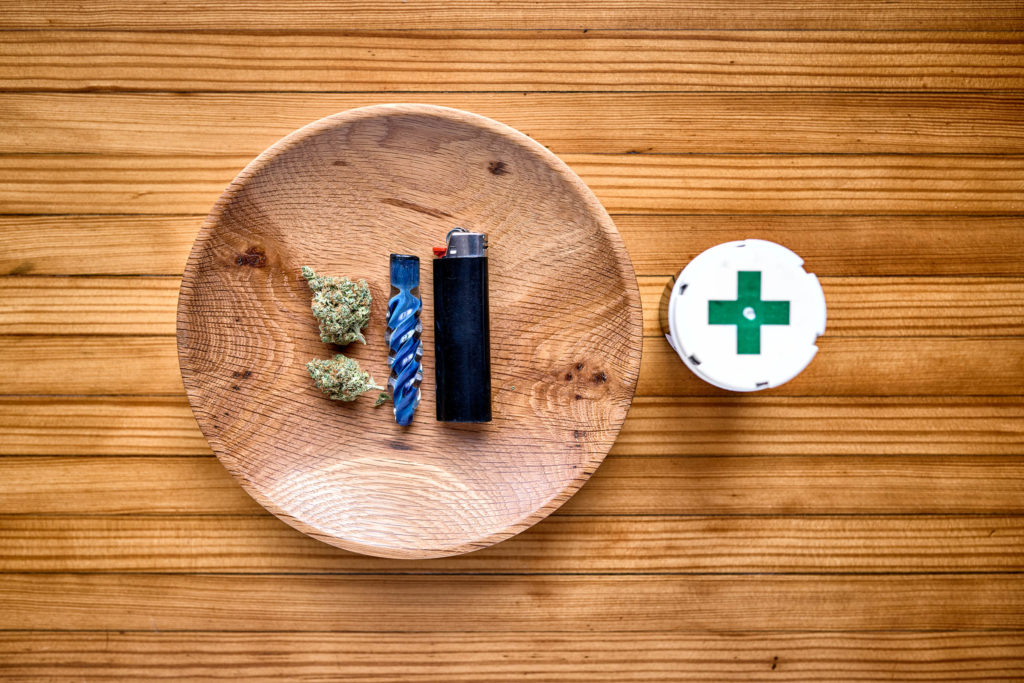
Industrial hemp in Lebanon
Hemp has been grown in Lebanon for centuries. The heart of the hemp industry is in the Bekaa Valley, which has the ideal climate and soil conditions for optimum cannabis growth. In fact, the arid soil is so suitable for its cultivation that no irrigation or fertilisers are required. Just one hectare of cannabis can produce anything between 40 to 100 kilograms of hashish, which is worth serious money to the farmer.
By the latter half of the 20th century, growing negativity towards cannabis meant that this abundant cultivation was almost eliminated. In 2002, it was estimated that only 2,500 hectares of cannabis plantations remained in the Bekaa Valley. In 2009, authorities claimed that they’d eliminated hemp production entirely. However, this wasn’t the case – only 1,300 hectares were destroyed.
The government’s eradication efforts have had serious impact on Lebanon’s rural communities, with many people now living in poverty. Traditionally, farmers relied on their annual cannabis harvest to boost their meagre incomes. The government has tried to find alternatives, but as of yet, has not been successful.
At present, it’s not certain how much illegal cultivation is taking place in Lebanon. Most believe it’s over 5,000 hectares in the Bekaa Valley alone. It’s risky for farmers to grow it, given the tough laws in place, but for many, it’s a vital source of money for their families.
The law may be set to change, though. If cannabis is legalised for medical use (to boost the country’s economy) it’s possible that industrial hemp will be made legal too.
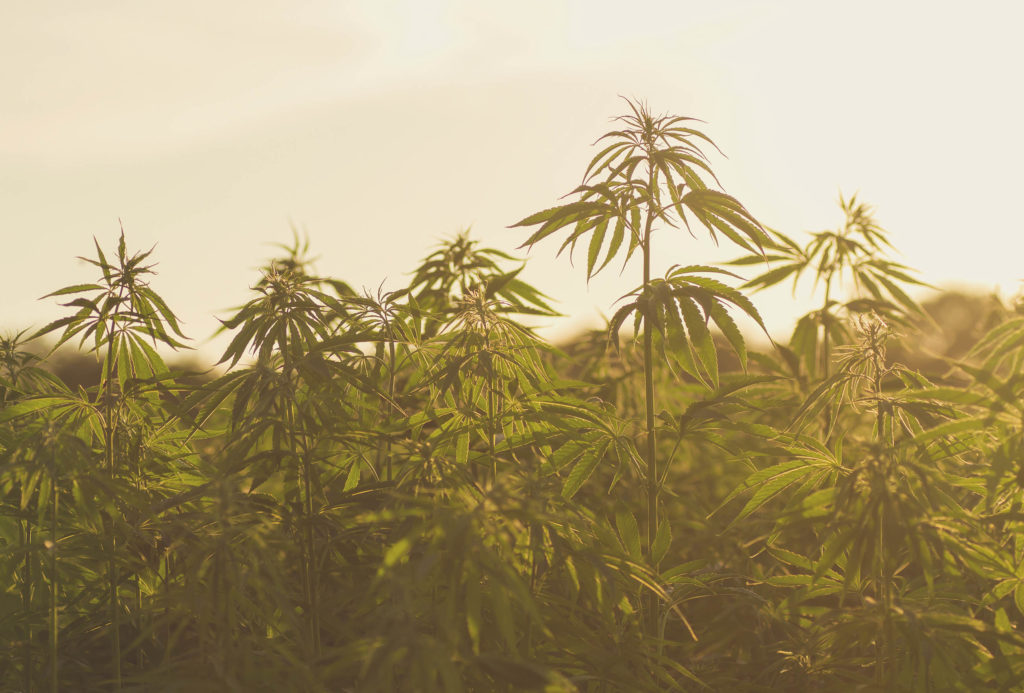
Good to know
If you are travelling to Lebanon (or are a resident of the country), it is useful to know the following:
- Cannabis is the most commonly seized drug in Lebanon, followed by cocaine, fenethylline and ecstasy.
- Cannabis has been used in the Bekaa Valley for centuries and is referred to as Al-Mabroukeh, which means the ‘blessed plant’.
- It was traditionally used as payment in the Bekaa Valley, with farmers also using it in dowries for weddings. Guests would be offered it freely as a gesture of hospitality.
Attitudes to cannabis
Outside the Bekaa Valley, attitudes to cannabis are quite negative. Many Lebanese people regard it as a ‘dangerous drug’; and the media often demonises Bekaa cannabis farmers as the ‘mafia’.
There is, however, a strong sub-culture of cannabis use in the country. This became more noticeable as the ‘baby boomer’ generation (those born between 1946 and 1964) started to become the dominant presence in society. These days, young people also tend to have a more positive view of cannabis.
What’s the cannabis like in Lebanon?
Lebanon is famous for its high-quality hashish; most of which is produced in Bekaa Valley. Lebanese Red and Blonde are popular Lebanese strains among the hashish-smoking community woldwide.
A farmer in Bekaa Valley, when talking about the Bekaa Valley hashish, tells ABC: “There is no such quality elsewhere in the world (…) You smoke this hashish once and you will never forget it. And then you’ll want to smoke it every day.”
Bekaa Valley’s fight over legalisation
Not everyone is happy about the government’s plans to legalise cannabis for medical purposes. Farmers in Bekaa Valley are protesting the move, claiming that the legalisation of hashish is a “theft from our people”.
One farmer stated: “As this crop generates a lot of revenues, so our politicians want to legalise it to steal that production.”
Cannabis has been cultivated openly in this area for decades, despite the laws. Government raids occasionally interrupt Bekaa Valley’s industry, but for the most part, the plantations are under the control of Shia militias, who permit the cannabis’ growth.
Abu Jafaar, a farmer in the area, has 30 arrest warrants out against him. He is against handing his cannabis harvest over to the government. “If the solution to avoid raids is to let them steal our money, well, we won’t accept that,” he tells ABC. “I work in danger every day for the money. What we want is that they let us grow it and not raid us anymore.”
Lebanese hash production
As one of the world’s hashish-producing capitals, it’s unsurprising that the Lebanese have mastered the technique of making hash. Here’s how it’s made:
- Harvesting. This usually occurs in late September, with the plants left out on the field until they’re almost dry.
- Drying. The plants are then laid on a rooftop to dry fully in the sun.
- Storing. Once dry, the cannabis is placed in a cool, dry room for two or three weeks, to cure it.
- Separating. The farmers then get to work separating the resin from the flowers, leaves and stems.
- Stripping. All stems and outer leaves are stripped.
- Rubbing. The female flowers are shaken and rubbed over a series of fine silk-screens with varying mesh sizes. The first ‘shake’ produces the highest quality dusty powder (kief). The second and third shakes produce inferior quality powder.
- Storing again. This powder is then placed in plastic bags and stored until winter, when it’s transferred into a cotton or linen bag to be pressed.
- Pressing. Industrial presses squeeze the powder into blocks of soft, malleable hashish.
Will it be legalised in the future?
At present, it seems likely that cannabis will be legalised for medical purposes. It’s difficult to say exactly when, as this depends on when the next government is formed and who is in charge of the law-making.
As for recreational use? Legalisation is unlikely, given the country’s negative attitudes towards cannabis. However, if the legalisation of its production boosts the economy significantly, perhaps people’s perceptions might change.
- Disclaimer:While every effort has been made to ensure the accuracy of this article, it is not intended to provide legal advice, as individual situations will differ and should be discussed with an expert and/or lawyer.







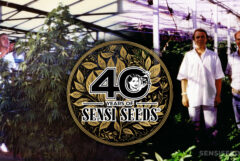
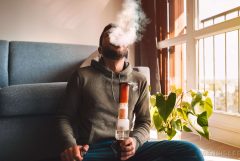


i live in leb, never heard about purple leb, even farmers that i asked after i read ur comment
I wanted to try sm other stuff than pufpuf so a friend told me about someone known as BAAL and damnnn he has the best leb hash u can ever find i didn’t even order he included abt 20g of super premium leb hash from the valley of marchhin as he said and dammnnn this stuff is purely medicinal and wonderfully recreational, works as a powerful nootropic. he also sells psylocibin gt ( that’s why i contacted him to begin with ) the only one in leb so far thats been able to hk me up with certain sorts of psychedelics baalthefix on wickr
I’ve been searching for seeds for the Purple Leb I used to grow in the 70s.
I was in Amsterdam 3 years ago. And could only find one storekeeper that had ever heard of lt. I am 80 years old and am talking from fort hand experience. The plant looked like 5 loaded stawberry leaves was purple from beginING to end. And was as good in every direction as anythING I’ve ever had. I had one row all purple and a row right next to that which was all green. Each row was the seeds I collected from two different blocks of leb ones hash. Can you help me find these seeds???
when I was young I been to Lebanon 5 times for summer vacation as a US citizen so I had to be careful my uncle produced some of the strong grade Hash blond red green & black I was young I did partake but when I was in the room when they did the refining I seen more then you can imagine!! as for bobby bliss comment yes their was a RARE breed of purple strain very exotic I have seeds that I took grew & it incredible !!! I been cross breeding with this special Landrace strain its has magic properties cures many illness the potency has to be in it 35% THC level with great CBD 4.9%-5% levels as well it the mother strain of the Jewel of Lebanon truly a Phoenician lavender dark with a heavenly smell & Great Resin trichomes we called it Phoenician Allah ! Arjan Roskam would eat his heart out for this rear breed strain my grandfather developed grew this strain loved deeply GIDO had the magic hand Purple color was created by the Phoenician by the mollusk shell to make the purple dye
i asked a cannabis grower in hermel region, clueless
i am interested, if this strain still available
have you ever came across this strain again…?
would this plant, (through extraction process) produce a red hash oil ?
if so, what would the flavors be, and the terpenes like…?
what would be the avg. thc content ?
thanks a lot
-axle
Thanks for the article Seshata. It sounds as if you’ve already been here!
I’m a Lebanese Citizen living in Beirut and I have previously visited a Sensi Seeds Shop in Amsterdam.
I’d like to add a +1 to ” Rolfen “. His comment is 100% true.
I’ve lived in Lebanon all my life and i never dared to smoke in public.
Although I did smoke near the main squares of many Euro Cities in the little time I have spent over there.
Lebanese Cannabis is one of the oldest and finest and yet most Lebanese citizens have no clue what potential the Bekaa valley holds for them. They are still getting taught that Cannabis is a Hard drug & it’s Taboo.
“Hacchech” describing a guy that smokes Hashish, also used as “junkie” or someone that abuses any sort of drugs; It’s the last thing you want your parents to hear about you as most of them believe it’s a Big & Dangerous Taboo.
The residents of the Cannabis cultivating villages in Bekaa have a very different approach to it than the majority of others around here.
Most youths in Lebanon however like it and wish if it was legal. In a survey we studied in 2008 in my college (L.A.U.) 67% of students admitted they have at least tried it once. And we believe that the real figure is somewhere around 80%.
It is still difficult though to buy Hash around here and people are very paranoid about it. I bet most Lebanese will be more confident walking with a gun in their suitcase than having a few grams of cannabis… It’s a shame 🙁
So what’s the punishment for smoking weed in Libanon or being high? What do the police say/do if they catch you? I live in Sweden but going to Libanon for vacation.. I use weed medically so I need to get hold of some when I’m there ..
Hi Immanuel, since you are a tourist don’t worry about the law here, just do it in private and keep your weed hidden.
Late reply, but for what it’s worth – like many things legal in Lebanon nobody is really sure. A friend got caught – he was menaced of prison time unless he testifies against his dealer, which he did, and the dealer received 5 years. That was about 10 years ago.
So the main idea is that the prisons are over-populated, and hash smokers would receive relatively short sentences and as such, they will not be imprisoned, because short sentences are not being applied due to overcrowding in prisons.
However there are no guarantees and it is still is a terrifying experience. Just smoke in private and among people you trust, you should be safe, I practiced that for a long time in Lebanon.
It is very rare to have a body search, and I have not heard of police breaking in due to hash consumption. They need a warrant to break into a house, it should only be done for serious crimes.
Cars are something else. Do not smoke in parked cars. Driving cars, maybe, but keep looking ahead for a police roadblock.
Thank you for this nice article.
As an (ex) resident of Beirut, Lebanon, I have some info to add. It applies to the capital, Beirut.
Attitudes towards hashish vary, but generally the level of paranoia is noticeably higher than in Europe (and this also apply to other things than MJ, sadly). I have never seen someone smoke in public, on the street, as you can see in Europe. There is no notion of police leniency towards marijuana. Yet the standard treatment for caught consumers is to scare them, pressure them, and threaten them in testifying against their dealer. A friend of mine was caught as an MJ consumer, and he had to do that. His dealer had to make 5 years of jail.
Due to the overcrowding of the prison system, minor offenders are likely not to serve their sentences, but due to the state of the said prison (and police) system, people try their best to stay away of it.
The cheapest hash can be found in Dahieh, a Beirut suburb which is known to be a Hezbollah suburb (if you have connections). Hezbollah are predominant in the Bekaa, Dahieh, and in the south, where it is said that they smuggle hashish to Israel. It might be speculations but one might see how easy it is to come to this (speculative) conclusion.
The potency of outdoor grown MJ is not up there, but if you know the right person (hint: Dahieh), you can have a steady supply of clean and cheap (if somewhat weak) hash, the way it’s supposed to be, and be a happy man.
Skunk is very hard to find and usually expensive, so better not waste time on that.
Hashish is grown in various fields in Lebanon not just bekaa valley for various authorities
In christian villages, for recreational use (excellent quality)
In bekaa lots of drug lords syrian and lebanese export the product while giving poor farmers bread for the year yet farmers are developing syndicates of their own to stray the cash flow into needy familiar pockets
The drugs flood Syria Jordan Turkey Israel even Europe
While politicians trash fields for personal benefits to enrage the opposite party who relies on black market money
The army is fed up out there in the fields inhaling gun powder and squished grass
Hezbollah is involved also in the trade but in a very small scale he’s into farming on poor hungry men to train and brainwash them for war, hash business isn’t sufficient to wage battles everywhere
The drug money is then dissolved to high ranking officers and higher ranking douche , politicians and not a single penny to citizens nor the good side of the government
If anyone needs info i’m visiting soon
This is my first time visit at here and i am really happy to read all at
single place.
Information about Hezbollah is merely speculation. Easy for one to speculate about anything really. Like the holocaust not happening, or all people in power are reptilian aliens. There is no evidence proving that Hezbollah is profiting or helping the farmers of the Bekaa valley. These farmers are run by people from certain families and tribes that have significant power and money. They have princes and princesses. They have a heirarchy going on, and has been going on for centuries. These families are the ones that control the Cannabis and Opium industry, the talk of Hezbollah controlling the drug industry is either unprofessionally cited, or Israeli propaganda, Lebanon’s previous occupier, hence enemy,
“the female flowers are shaken and rubbed over a succession of fine silk-screens with varying mesh sizes. The first shake uses the smallest mesh, and produces a fine, dusty powder with a reddish-golden hue.”
I was surprised to read the detail that the “first shake uses the smallest mesh”. My experience– using metal screens which are stiffer than silk– is that you have to
(A) grind (“rub”) the herb against a somewhat wider screen first– 1/8-inch– to break things down;
(B) shake in a 1/16″ sifter (16-shake);
(C) grind the remainder through (16-grind);
(D) shake both the above 16-fractions in a 1/32″ sifter– the fine dust can be combined to serve as the “kief” to be pressed into hashish or– surprise– toked loose in 10-15-mg single tokes without bothering to make hashish at all.
1. The seeds are sorted out and wind up in the flowerpot;
2. The stems and twigs are brewed into tea, then after softening they can be added to veggie “smoothies” via your blender.
3. The 16-shake is served at parties when you have little time to scratch your one-hitter’s screen;
4. The 16-grind, containing the least cannabinoid, is carried with you in case you have to bribe a less than trustworthy person.
You use smallest screen first then larger ones and Lebanese is steam pressed re: the Hashish connection a great documentary by journeyman pictures